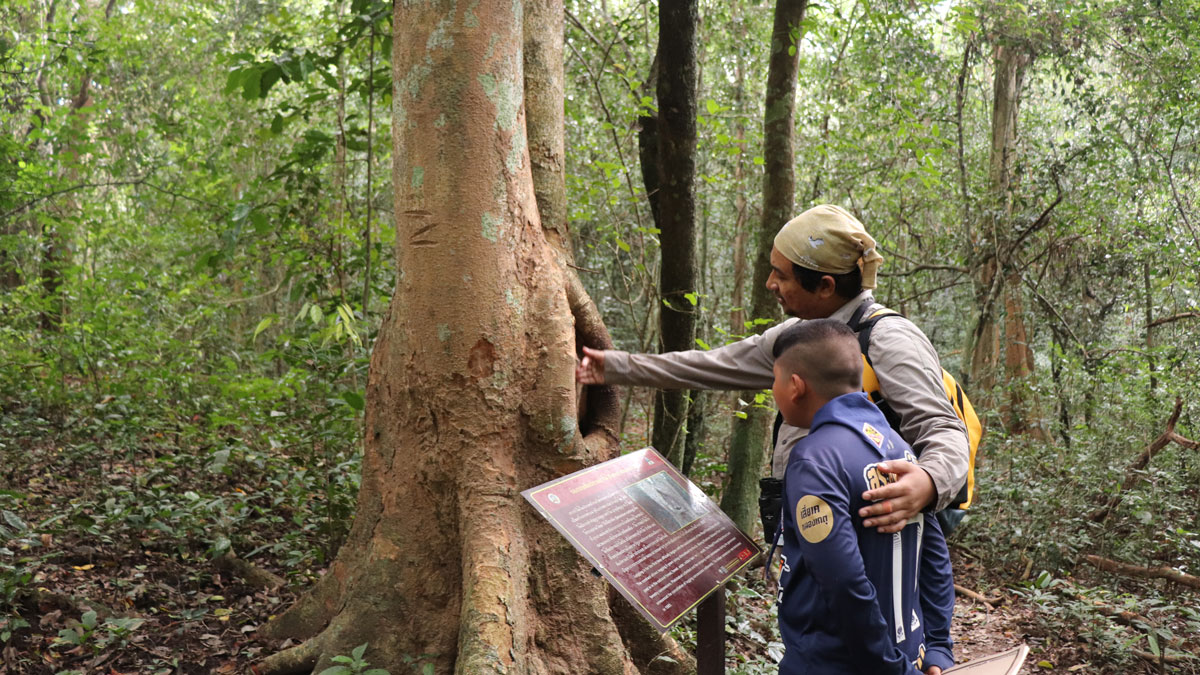About the theme - Reimagining Conservation in Asia: A Nature Positive Future
Here we present a detailed rationale behind our chosen theme for the 8th IUCN Asia Regional Conservation Forum.
As our world continues to grapple with the triple planetary crisis – climate change, biodiversity loss and pollution – IUCN faces a critical moment to shape its strategic agenda and direction for the next decades. In gearing up for the next World Conservation Congress in 2025, this year IUCN in Asia steps back from business as usual to reflect on our achievements and contributions toward a world that values and conserves nature. We ask ourselves: What changes are necessary for maintaining relevance and influence in a landscape that is completely different from the one when IUCN was established more than 75 years ago?
The 8th IUCN Asia Regional Conservation Forum presents a timely and critical opportunity to come together as a Union in reimagining conservation, where we must encourage ourselves to take stock and transform, to reconceptualise and recalibrate, and to think outside and anew. The Forum will provide an open, interactive and neutral space for us to critically reflect on our past and future in conserving the region’s biodiversity for sustainable development. This encompasses a ‘reimagining’ of IUCN’s mission and roles, tools, frameworks, and approaches, as well as partnerships and resources.
Thankfully, through the power of the Union, it has been and will continue to be a shared journey by Members, Commissions and the Secretariat along with our partners, funders and supporters from both public and private sectors. Since its post-war beginnings, IUCN’s mandate has evolved and expanded from nature protection to conservation, to sustainable use of natural resources and now to broader societal challenges. In Asia, we have seen how nature conservation has underpinned the region-wide agenda and action – from mitigating negative impact through the 3Rs (reuse, reduce, recycle), to embracing net zero and neutrality targets, and now to pursuing biodiversity net gain and nature positive.
And while IUCN was born as the first global environmental Union in 1948, the world’s conservation community has rapidly grown ever since, becoming more dynamic and complex. We welcome this growth of the environmental community. Yet there is still much to be done by IUCN as the global authority on the status of the natural world and the necessary measures to safeguard it. Among the challenges is better aligning its work to the new global goals and targets – for biodiversity, climate and the environment – and in better enabling countries in Asia to meet these commitments in the next decades.
Most importantly, IUCN recognises that it cannot tackle these challenges alone. That is why the 8th IUCN Asia RCF seeks to be genuinely inclusive, by providing an open forum for our Members, Commissions, youths, women, indigenous peoples and local communities, international and regional organisations, academia, the private sector, among others.
We look forward to welcoming you all to this year’s home of the Union in the region. Let’s start reimagining.

